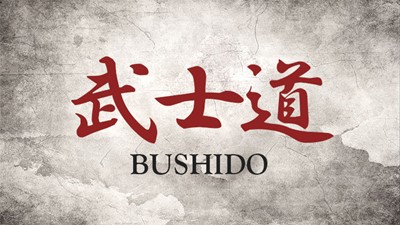
To see the previous installments, click on the following links: #1, #2, #3, #4
Rodrigo Tanaka, dressed in a modest prisoner's kimono, kneels on a small straw mat, a goza. In front of him, crossing the threshold, is Masaki Hayato who, in a firm and ceremonious voice, lists the charges:
“Rodrigo Tanaka, you are accused of professing the Christian faith, a practice forbidden in these lands by shogunate decree. In addition, you are accused of being a spy for the Uesugi with the intention of destabilising the rule of the Date clan.”
Each word reverberates in the confined space of the cell and Rodrigo, calmly and indignantly, listens without interruption. When Hayato finishes, silence takes over the time.
Finally, Rodrigo takes the floor, barely bowing his head in respect, but with the firmness of someone who wants to defend his honour.
“Masaki-dono, I reject all accusations. The pottery decorated with crosses is not mine, someone placed it there to incriminate me. I cannot say who, but I have reason to believe that there are factions within Sendai who are using my position to destabilise the Date clan and weaken their influence with the shogunate.”
Rodrigo pauses, taking a deep breath to control the frustration that threatens to crack his voice, and continues:
“As for espionage, that accusation is as baseless as the last. I have sworn allegiance to the Date clan since I was accepted as one of their own. Why would I betray my own blood and those who have instructed me in the way of bushido?”
Hayato, his expression unperturbed, puts the scroll away and crosses his arms. His eyes scan it closely, as if searching for inconsistencies in his tale, but he finds only conviction.
“Your words are convincing, Rodrigo-san. Your lineage and past service entitle you to an investigation. If you are telling the truth, time will prove it. If not... bushido also dictates how the guilty are judged.”
To be continued
Header Image:
Bushido. Source: Internet
Trying to decide how having a scene that we have just had an overview of in the last instalment then be written out in full as a conversation. Seems to work fine as a style of writing.
Do they have trial by combat or anything like that? Or is bushido similar to say a military law code as opposed to a civilian one?
So cool! I know I'm reading text, but I feel like as if I'm watching a TV show or movie! I'm very curious about the pottery decorated crosses. And, thank you for using the term goza this time!
Many thanks to all of you who participate in the corrections of my texts: @Sprouts, @SEQ77 y Uly ( @CocoPop). I perceive it as a miracle that people from different areas of the world read my texts, correct them and give me their opinion in an altruistic way.
I'm glad you like it, Yumi @yumiyumayume . For me it's like travelling to a distant country in another time. It's very interesting. Just as I travelled to Pompeii before the eruption of Vesuvius, I am now in Japan in a very interesting time.
The bushido, @Sprouts, literally ‘the way of the warrior’, is the code of ethics and conduct that guided the lives of samurai in feudal Japan. It is influenced by Confucianism, Zen Buddhism and Shintoism. Its discipline emphasised values such as absolute loyalty to the feudal lord, honour, justice, courage, compassion, sincerity and self-control. It could lead to ritual suicide if the samurai broke his discipline.